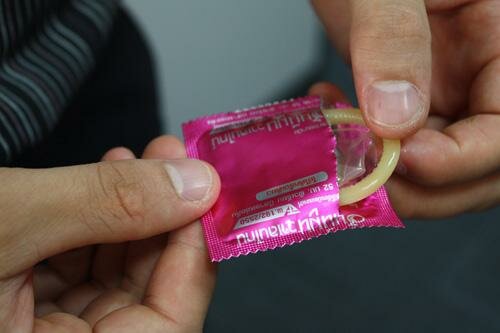In Philippines, a War against Artificial Contraception
In some villages, you’d need a prescription to buy condoms.

The growing number of villages seeking to outlaw the sale of condoms, birth control pills and other artificial forms of contraception without a prescription is worrying government officials and women's rights groups.
Seven villages in Bataan, a low- to middle-income province west of the Philippine capital of Manila, are lobbying to enact a local ordinance to ban condoms and other forms of modern contraception without a prescription.
The ban comes on the heels of a similar ordinance passed in January 2011 in Ayala Alabang, one of the most affluent areas in the country.
"We feared that [the] Alabang [ordinance] would set a precedent and would only be the beginning. Alabang was never just a local issue, but one of national importance," Elizabeth Angsioco, head of the Democratic Socialist Women of the Philippines, told IRIN.
The Philippines is the only country in the Southeast Asian region without national legislation to institutionalize access to reproductive health information and services.
Delaying Reproductive Health Bill
Some say the recent legal moves are meant to distract from the bigger issue – the impending, highly contentious passage of the nation's first legislation on reproductive health (RH). Its provisions to make condoms and other forms of contraception readily available in hospitals have been debated for almost 20 years.
"We see these ordinances as the work of the anti-RH camp to deliberately thwart the passage of the RH Bill," said Ramon San Pascual, executive director of the Philippine Legislators' Committee on Population and Development, a policy advocacy institution pushing for development policy reforms.
Recently, the RH Bill made significant progress. The current Aquino administration has openly stated its support for "responsible parenthood", unlike the previous administration, which promoted only natural family planning methods.
"If the national government doesn't put its foot down, they [anti-RH groups] will become bolder and pass similar ordinances. We cannot let our 42,000 villages impose their will, contrary to the interests of their constituents. We need the RH Bill to ensure access to reproductive health services and information for the poor, who need it the most," said former Department of Health Secretary Esperanza Cabral, who is also a resident of Ayala Alabang.
If the bill is passed, it will overrule all other local laws.
Condom use shamed
Condom use and contraception have always been a dilemma for this Catholic country of more than 100 million inhabitants. The Church has adamantly opposed any form of modern contraception, saying they are abortifacients that promote promiscuity. A strong social stigma surrounds condom use as a result.
"When I buy condoms at the drugstore, the cashier will look at me and I just know they're thinking I'm too young to be using the stuff," said Jet, a 22-year-old college student, who preferred anonymity.
The National Demographic Health Study of 2008, showed condom use at a mere 2.8%. Those surveyed preferred other methods, including unprotected withdrawal, at 9.8%.
As a result, the government of this lower-middle income country has been labouring to support a ballooning population with growth pegged at 2.04%, one of the highest in the region.
According to the National Statistics Coordination Board, 32.9% or 28 million Filipinos live on less than US$1 a day.
Constitutional questions
Government agencies have declared the proposed ordinances unconstitutional.
"A local council cannot regulate drugs and determine what's safe and what's not. Under the Food and Drugs Administration [FDA] Law, it is only the FDA who has the full powers to regulate food, drugs and other devices," said Pia Cayetano, head of the Senate Committee on Health and Demography.
However, in 2000, in Manila, an executive order was passed, declaring that only natural family planning methods would be promoted in government-owned hospitals and clinics. As a result, birth control pills, intrauterine devices and condoms are unavailable in government clinics and thus inaccessible to the poor. Under the same ordinance, which remains in effect today, vasectomies and tubal ligation are also illegal.
"We already saw this kind of religious bigotry before in the City of Manila," said Junice Melgar, executive director of the NGO Likhaan Women's Health Center. "We cannot let this happen again."
Supporters remain adamant that the RH Bill is not only necessary, but urgent.
"There are 11 mothers who die every day in the Philippines because of pregnancy-related deaths. That alone is enough reason to pass the RH Bill and make family planning accessible to all," said San Pascual of the Philippine Legislators' Committee on Population and Development.
The article was first published in IRIN in April 2011.

















